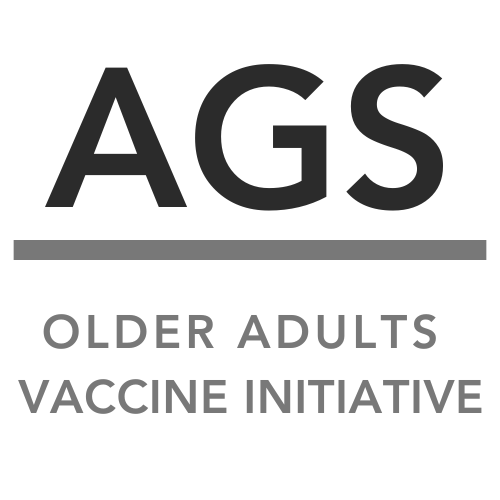
Immunizations... Updated April 2024
ASSESS IMMUNIZATION STATUS
Assess immunization status of all your patients at every clinical encounter. Ensure that patients’ vaccine needs are routinely reviewed, and patients get reminders about vaccines they need.
RECOMMEND VACCINES
Strongly recommend vaccines that patients need.
-
Share personalized reasons why vaccination is right for the patient.
-
Highlight positive experiences with vaccination.
-
Consider sharing personal experiences with vaccination if comfortable doing so.
-
Address patient questions and concerns, including addressing vaccine hesitancy.
-
Remind patients that vaccines protect them and their loved ones against several common and serious diseases. Explain the potential costs of getting sick.
-
Communicate clearly and nonjudgmentally, recognizing that some patients might not agree to be vaccinated, even after addressing their questions.
-
Address any safety concerns expressed.
-
For those patients expressing vaccine hesitancy, consider asking why they are hesitant, addressing their specific concerns, and helping them distinguish between disinformation and misinformation.
-
|
Coronavirus Disease 19 (COVID-19) Vaccine Talking Points with Patients |
|
|
Influenza Vaccine Talking Points with Patients |
|
|
Pneumococcal Vaccine Talking Points with Patients |
|
|
Recombinant Zoster Vaccine (RZV) Talking Points with Patients |
|
|
Respiratory Syncytial Virus (RSV) Vaccine Talking Points with Patients |
|
|
Tetanus/Diphtheria (Td) and Tetanus/ Diphtheria/Acellular Pertussis (Tdap) Vaccine Talking Points with Patients |
|
ADMINISTER OR REFER PATIENTS FOR VACCINES
Administer or refer your patients to a vaccine provider.
-
Offer the vaccines you have available.
-
Refer patients to providers in your area that offer vaccines, such as, but not limited to:
-
Retail pharmacies
-
Health departments
-
Community health fairs
-
-
Refer patients to the vaccines.gov website, which helps direct patients where to find COVID-19 and flu vaccines.
-
Provide options to administer or refer patients who are of special populations, such as those who are homebound.
The following are the recommended vaccines for older adults, over 65 years old.1
1ACIP Adult Immunizations Schedule 2023. These recommendations must be
read along with the information provided below. Note ACIP has recommendations for varicella, hepatitis
A, hepatitis B, meningococcal and haemophilus influenza type b vaccines that include the ≥65 years
age group for persons with an additional risk factor or another indication.
https://www.cdc.gov/vaccines/schedules/hcp/imz/adult.html#table-age
Coronavirus Disease 2019 (COVID-19) Vaccine
- Indications
Adults 65 years and older should receive one dose of an updated 2023-2024 mRNA COVID-19 vaccine (Pfizer, Moderna, or Novavax), followed by an additional dose at least 4 months later
Adults 65 years and older who are immunocompromised should receive different dosing depending on COVID-19 vaccination history:
COVID-19 Vaccine Recommendations for Immunocompromised Older Adults Previous COVID-19 Vaccination History
2023-2024 Updated Vaccine
Number of Updated Vaccine Doses to Receive
Dosing Schedule
Have never received a COVID-19 vaccine before
Moderna or Pfizer-BioNTech
Novavax
3
2
Moderna (3 doses)
Doses 1 and 2: given 4 weeks apart
Doses 2 and 3: given at least 4 weeks apart
Pfizer-BioNTech (3 doses)
Doses 1 and 2: given 3 weeks apart
Doses 2 and 3: given at least 4 weeks apart
Novavax (2 doses)
Doses 1 and 2: given 3 weeks apart
Have previously received 1 dose of the Moderna or Pfizer- BioNTech COVID-19 vaccine
Same manufacturer as previous vaccine
2
Dose 1: at least 4 weeks after the last dose (Moderna)
Dose 1: at least 3 weeks after the last dose (Pfizer-BioNTech)
Doses 1 and 2: given at least 4 weeks apart
Have previously received 2 doses of the Moderna or Pfizer- BioNTech COVID-19 vaccine
Same manufacturer as previous vaccines
1
Dose 1: at least 4 weeks after the last dose
Have previously received 3 doses of the Pfizer-BioNTech or Moderna COVID-19 vaccine
Moderna, Pfizer-BioNTech, or Novavax
1
Dose 1: at least 8 weeks after the last dose
Have previously received 1 or more doses of the Novavax or Janssen COVID-19 vaccine (including in combination with any mRNA vaccines)
Moderna, Pfizer-BioNTech, or Novavax
1
Dose 1: at least 8 weeks after the last dose
People ages 65 years and older who are moderately or severely immunocompromised should receive 1 additional dose of any 2023–2024 updated COVID-19 vaccine (Moderna, Novavax, or Pfizer-BioNTech) at least 2 months after the last dose of the 2023–2024 updated vaccine.
- Contraindications and Precautions
It is rare for patients to have a contraindication to the COVID-19 vaccine. The following are contraindications and precautions to the COVID-19 vaccine:
-
History of a severe allergic reaction (e.g., anaphylaxis) after a previous dose or to a component of the COVID-19 vaccine.
-
History of a known diagnosed allergy to any component of the COVID-19 vaccine.
-
History of anaphylaxis after any vaccine other than COVID-19 vaccine or after any injectable therapy (i.e., intramuscular, intravenous, or subcutaneous vaccines or therapies [excluding subcutaneous immunotherapy for allergies, i.e., “allergy shots”]).
-
People with a history of a non-severe, immediate (onset less than 4 hours) allergic reaction after a dose of one type of COVID-19 vaccine have a precaution to the same type of COVID-19 vaccine.
-
People with an allergy-related contraindication to one type of COVID-19 vaccine have a precaution to the other types of COVID-19 vaccines.
-
Special situation: People with a known allergy to polysorbate have a contraindication to the Novavax COVID-19 vaccine.
Moderate or severe acute illness, with or without fever. -
History of MIS-C or MIS-A.
-
History of myocarditis or pericarditis after a dose of an mRNA or Novavax COVID-19 vaccine.
-
- Vaccine Dosing and Administration
-
See Indications above
-
- Side Effects
-
Redness, swelling at the injection site
-
Tiredness
-
Headache
-
Muscle pain
-
Chills
-
Fever
-
Nausea
-
Influenza Vaccine
- Indications
-
1 dose annually. A second dose annually is not recommended.
-
All persons >6 months of age, including those age >65 years and/or with high-risk conditions such as chronic pulmonary (including asthma) or cardiovascular (except hypertension); chronic hepatic, renal disease or hemoglobinopathies; immunosuppression; metabolic disorder (e.g., diabetes); neurologic or neuromuscular disorder (e.g., cognitive dysfunction, seizures, spinal cord injury).
-
All residents of nursing homes or chronic care facilities.
-
All household contacts of high-risk adults or those ≥65 years.
-
- Contraindications and Precautions
-
Any prior anaphylactic reaction to vaccine or components (e.g., eggs).
-
Do not give live vaccine (LAIV) to persons ≥50 years.
-
Guillain-Barré syndrome within 6 weeks of a previous dose.
-
- Vaccine Dosing and Administration
Dosing
ACIP recommends that adults aged ≥65 years preferentially receive any one of the following higher dose or adjuvanted influenza vaccines:
-
quadrivalent high-dose inactivated influenza vaccine (HD-IIV4)-Fluzone, High Dose
-
quadrivalent adjuvanted inactivated influenza vaccine (aIIV4)-Fluad Quadrivalent
-
quadrivalent recombinant influenza vaccine (RIV4)-Flublok Quadrivalent
If none of these three vaccines is available at an opportunity for vaccine administration, then any other age-appropriate influenza vaccine should be used, below.
-
Inactivated influenza vaccine, quadrivalent (IIV4), standard dose
-
Fluarix Quadrivalent
-
FluLaval Quadrivalent
-
Fluzone Quadrivalent
-
Afluria Quadrivalent
-
Flucelvax Quadrivalent
-
Administration
-
Store at 35-46oF (2-8oC). Do not freeze.
-
Vaccinate in deltoid muscle using needle length ≥1 inch (≥25 mm).
-
Administer just prior to annual flu season.
-
- Side Effects
-
Soreness, redness at injection site lasting 1-2 days
-
Fatigue
-
Muscle aches
-
Headache
-
Joint pain
-
Fever/chills
-
Hoarseness
-
Sore or red eyes
-
Pneumococcal Vaccine
There are two kinds of pneumococcal vaccines: Conjugate Pneumococcal Vaccines (PCV13 and PCV15, and PCV20) and the Polysaccharide Pneumococcal Vaccine (PPSV23).
- Indications
For adults 65 years or older who have not previously received any pneumococcal vaccine:
Give 1 dose of PCV15 or PCV20:
-
If PCV20 is used, a dose of PPSV23 is NOT indicated. PCV20 alone is sufficient.
-
If PCV15 is used, this should be followed by a dose of PPSV23 at least one year later. The minimum interval is 8 weeks and can be considered in adults with an immunocompromising condition, cochlear implant, or cerebrospinal fluid leak.
For adults 65 years or older who have only received a PPSV23:
Give 1 dose of PCV15 or PCV20.
-
The PCV15 or PCV20 dose should be administered at least one year after the most recent PPSV23 vaccination.
-
Regardless of if PCV15 or PCV20 is given, an additional dose of PPSV23 is not recommended since it has already been received.
For adults 65 years or older who have only received PCV13:
Give 1 dose of PPSV23 at least one year later.
-
- Contraindications and Precautions
-
Do not give either pneumococcal vaccine to patients with a history of serious reaction (e.g., anaphylaxis) after a previous dose or to a vaccine component.
-
Moderate or severe acute illness with or without fever.
-
Minor illnesses with or without fever are not contraindications.
-
-
- Vaccine Dosing and Administration
-
Administer 0.5 mL PCV20 or PCV15 intramuscularly (22–25 g; needle length according to the patient's age/body mass [1–1½"]).
-
Administer 0.5 mL PPSV23 either intramuscularly (22–25 g; needle length according to the patient’s age/body mass [1–1½"]) or subcutaneously (23–25 g, 5/8" needle).
-
Can be given concurrently with other vaccines at different sites.
-
- Side Effects
-
Soreness, redness at injection site lasting 1-2 days
-
Tiredness
-
Joint pains
-
Muscle aches
-
Headache
-
Recombinant Zoster Vaccine (RZV)
RZV Requires 2 Dose Regimen
- Indications
-
FDA: All adults ≥50 years old regardless of report of prior zoster infection.
-
CDC recommends RZV for immunocompetent adults ≥50 years old including individuals with prior receipt of the live attenuated zoster vaccine.
-
Live attenuated zoster vaccine (Zostavax) no longer sold in the US effective July 1, 2020.
-
Two doses of recombinant zoster vaccine are recommended for the prevention of herpes zoster and its complications in adults aged ≥19 years who are or will be immunodeficient or immunosuppressed due to disease or therapy.
-
Second dose administered between 2-6 months after the first dose.
-
If the 2–6-month window is missed, administer the second dose any time after 6 months. Do not re-start the series.
-
- Contraindications and Precautions
-
History of a severe allergic reaction (e.g., anaphylaxis) to any component of RZV.
-
- Vaccine Dosing and Administration
-
Intramuscular injection administration into the deltoid muscle (0.50 mL dose).
-
Lyophilized VZV gE antigen reconstituted with the AS01b adjuvant suspension.
-
Stored at 36-46°F (2-8°C).
-
Should be given within 6 hours of reconstitution to maintain potency.
-
- Side Effects
-
RZV is more reactogenic than most vaccines.
-
Pain, redness and swelling at the injection site
-
Muscle pain, tiredness, headache, chills, fever, nausea
-
About 1 in 6 persons have reactions that prevent them from doing normal activities
-
Avoid strenuous activities for a few days after vaccination
-
Most symptoms resolve in 1 to 3 days
-
Respiratory Syncytial Virus (RSV) Vaccine
There are 2 RSV vaccines: Pfizer RSV vaccine (RSVpreF) and GSK adjuvanted RSV vaccine (RSVPreF3)
- Indications
-
CDC recommends that all adults aged ≥60 years may receive a single dose of RSV vaccine, using shared clinical decision-making.
-
The decision to vaccinate a patient should be based on a discussion between the health care provider and the patient, which might be guided by the patient’s risk for disease and their characteristics, values, and preferences; the provider’s clinical discretion; and the characteristics of the vaccine.
-
- Contraindications and Precautions
-
History of a severe allergic reaction (e.g., anaphylaxis) to any component of RSV vaccine.
-
RSV vaccination should be delayed for persons experiencing moderate or severe acute illness with or without fever.
-
- Vaccine Dosing and Administration
-
Single dose (0.5 mL) intramuscularly
-
- Side Effects
-
Pain, redness, and swelling at the injection site
-
Fatigue; myalgia; headache; arthralgia; fever; nausea; diarrhea
-
Tetanus/Diphtheria (Td) and Tetanus/ Diphtheria/Acellular Pertussis (Tdap) Vaccine
- Indications
-
Complete vaccine series is indicated for older adults with uncertain vaccine history or with fewer than 3 recorded doses.
-
ACIP recommends that all adults aged 19 years and older who have not yet received a dose of Tdap should receive a single dose. Tdap should be administered regardless of interval since last tetanus or diphtheria toxoid-containing vaccine. After receipt of Tdap, persons should continue to receive Td or Tdap for routine booster immunization against tetanus and diphtheria, according to previously published guidelines.
-
- Contraindications and Precautions
-
Prior anaphylaxis with Td vaccine; acute illness
-
- Administration
-
Td: Primary: 3 doses of tetanus and diphtheria toxoid; 1st 2 doses at least 4 weeks apart, 3rd dose 6-12 months later; boosters at 10-year intervals; more often with high-risk injuries (burns, puncture wounds, extensive soft tissue injury)
-
Tdap: one time dose
-
- Side Effects
-
Pain, redness or swelling where the shot was given
-
Feeling tired
-
Headache
-
Fever
-
Nausea, vomiting, diarrhea, stomachache
-
DOCUMENT VACCINE STATUS
Document vaccines received by your patients.
-
Many states use an Immunization Information System (IIS). If your clinic or health system is not already participating in your state's IIS, speak to the appropriate people about the benefits of doing so. Participating in your state's IIS will help your clinic/system, your patients, and your patients' other providers know which vaccines your patients have had.
-
Follow up. Confirm that patients received recommended vaccines that you referred them to get from other immunization providers.








